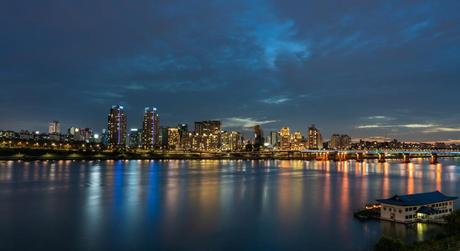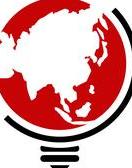
If you're reading this, you've already booked your flights to South Korea and are now in the final stages of planning your trip. This may be three to six months before you fly out for some of you, whereas others may be leaving in less than a week. As you get closer and closer to your departure date, this stage becomes increasingly thrilling.
Our first version of this essay (four weeks before flying to Seoul) began with our youngest son starting a countdown on our family calendar.
Our objective with each piece of writing is to make the travel planning process as simple and pleasurable as possible. Our suggestions for traveling to South Korea are useful for all travelers, whether you're backpacking, going alone, in the middle ground, or on a luxury vacation. Check it out to make sure you're fully prepared to go before your trip so that you can focus on having a good time.
Tips for Visiting Korea
Below are our recommended pre-departure travel tips to make sure you are fully prepared for your South Korean trip, so that you can spend more time having fun.
1. Requirements for a Korean Passport and a Tourist Visa.
The first thing I'd recommend is to check to see whether you have a passport with at least six months of remaining validity beyond your planned date of departure from South Korea. While the timeline varies depending on your nationality, having a passport with six months of validity is a safe bet. You should also have a Korean visa issued by the Korean embassy or consulate in your country.
When it comes to South Korea's visa requirements, things can vary quite a bit based on where you're from. The good news is that there are 107+ countries that are part of a Visa Waiver Agreement. People from these nations may enter South Korea for tourism without a visa for 30 days to 90 days depending on their national passport or official/diplomatic pass. Only holders of formal or diplomatic passes originating from certain countries are permitted entry into these territories.
2. Accommodation in South Korea.
If you haven't already booked your accommodation in South Korea, I recommend making reservations approximately three months before you leave. During peak travel times or if significant events are scheduled, you may need to book further ahead. For South Korea, I recommend using Booking.com (which will take you to Seoul's accommodation options).
Make sure you have the correct address information for each lodging reservation you've made. Korean street names and numbers are hard to understand, so double-check that you have the address saved in your phone's GPS software as well. The Kakaomap app is our preferred method of travelling around Korea, as it is available for both iOS and Android.
You may also pre-load the accommodation applications from your accommodation sites with your account and booking data on your phone. They will often offer a map choice to assist you in locating your accommodation.
3. Travel Insurance in Korea.
Given that travel insurance is relatively cheap in comparison to the overall cost of your trip, it's definitely worth getting. Support in medical and dental emergencies, delayed or rescheduled flights, replacement of missing or stolen luggage, stress-free vehicle hire, and situations where you've been found responsible for someone's injuries or property damage are all instances where travel insurance can assist you.If you haven't already, now is the time to purchase travel insurance. Although most insurance is not available after you depart, there are exceptions. If you have any pre-existing medical issues, you must act quickly; some insurance companies will refuse to cover your expenses. Here are a few examples of situations when we were thankful for our travel insurance. We were able to obtain a new camera after someone stole our expensive one on an Italy trip and we were compensated for the cost of the stolen item through our travel coverage plan On our adventure to New Zealand, we encountered yet another example of how beneficial travel insurance can be. The first Christchurch earthquake occurred one month before we were scheduled to fly to New Zealand in 2010, and we had to make several modifications to our reservation. We were thankfully able to obtain reimbursements (in one case, several months later) but would have needed our travel insurance if we hadn't been able to do so. Our third story is about a trip to Japan. When our youngest child got chicken pox in Japan, we had to pay US$320 for medicine since most of it was covered by our insurance. If your kid needed to be hospitalized abroad without travel insurance, the prices would have been prohibitive.
4. Korail Pass
When visiting South Korea, many visitors buy a Korail pass (a special rail pass for tourists). Many people purchase this pass because it makes traveling throughout South Korea quick, affordable, and convenient. A Korail pass also comes with numerous other advantages, including free or discounted access to a variety of museums, attractions, and tours as well as discounts on a number of hotels and duty-free shops. Another significant advantage of purchasing your Korail pass before you arrive in South Korea is that you will have one less thing to worry about while planning once you get there.
The main advantage of having a Korail Pass is that it makes changing your seat reservations a breeze. We had booked seats to go from Busan to Seoul, but as a result of a typhoon passing through Busan we decided to cancel our trip to Busan and return early to Seoul. We were able to simply cancel our previous seat reservations and make new ones with the Korail pass, without having to get any money back for the individual tickets.
5. Public Transport Cards - Seoul and Other Large Cities' Local Transport
A tap on tap off local transport card is another fantastic purchase to make for your visit to South Korea. Seoul and other cities like Busan's public transportation service is the simplest, quickest, and most economical method to travel around..
A public transportation card that allows you to tap on and off might be a useful addition to your South Korea excursion. Seoul and other cities like Busan's public transportation system is the most convenient, quickest, and inexpensive way to get around.
A Railplus Transport card or a T-money card are the most common forms of transportation cards in South Korea. The Cashbee Card, which can be used in Busan, is one alternative, but you may use your Rail Pass Plus and T-money cards in Busan as well as all other local transport throughout South Korea's cities.

